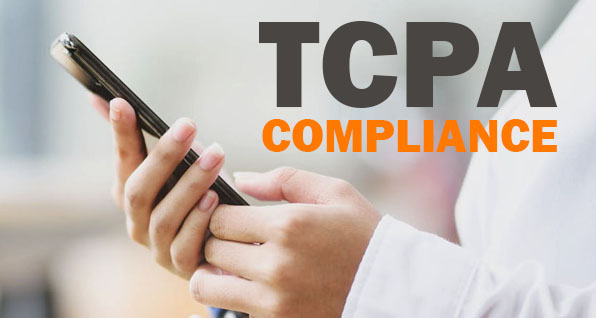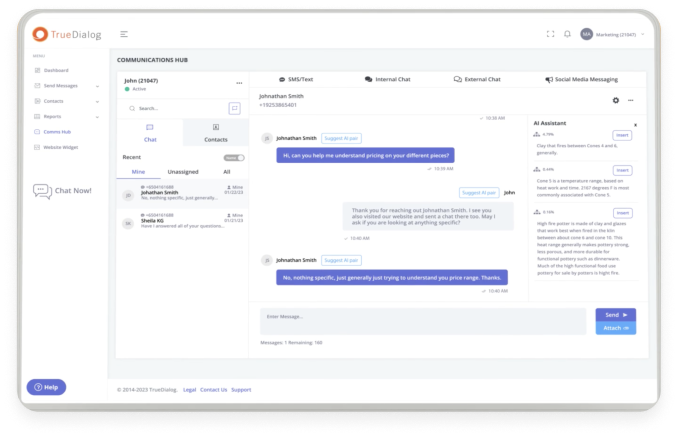*Please note that this article is for informational purposes only and is neither intended as nor should be used as legal guidance. Please consult with your legal counsel and/or your organization’s regulatory compliance team.
Before you can send text messages or voice broadcast calls to your customers, you should ensure that your messages comply with the TCPA (Telephone Consumer Protection Act, if applicable.
What is the TCPA?
The TCPA was enacted in 1991 to restrict unsolicited telemarketing and calls that are generated by automatic telephone dialing systems. Text messages were added to the TCPA in 2003 to protect consumers from getting spam messages.
The TCPA requires any business that will be sending auto-dialed voice calls and text messages to obtain prior written consent from recipients. Additionally, the TCPA requires varying forms of consent depending on the type of message being sent.
In TrueDialog’s recent webinar on TCPA Compliance, our guest Adam Bowser, a TCPA expert and attorney at Arent Fox, discusses the importance of the TCPA and business requirements to maintain compliance when sending voice and text messages.
TCPA Compliance by Message Category
SMS Marketing and Voice Message Marketing: Messages encouraging the purchase of a product or service, or a message which is intended to lead to a sale or purchase. Autodialed or prerecorded marketing messages require prior express written consent from customers, which can be obtained through physical forms, online forms, keyword opt-in or email responses, among other methods.
Informational Texting and Voice Calls: Messages providing information based on an existing business relationship or transaction, such as a shipment notification of a previously purchased product. Informational messages require prior express consent and is implied when a customer provides a phone number during a purchase or transaction.
Emergency Notifications: Messages that impact the safety and health of customers or employees. No consent is necessary for emergency messages, as the purpose of the message is to prevent danger or harm due to unforeseen circumstances such as hazardous weather.
Hybrid: Messages containing a combination of information and marketing. Prior express written consent is required for hybrid messages, as they are categorized as marketing messages based on an offering of a service or good.
TCPA Text Message and Voice Broadcasting Opt-in and Compliance
As Adam stated in the webinar, most TCPA litigation results from mass SMS marketing or voice messages due to negligence from businesses not having a proper opt-in process. Litigation is rare with informational or emergency messages.
Implementing a rigorous opt-in process as well as setting clear expectations with your customers regarding how and when voice broadcasting and text message communications will be used can help businesses provide better customer experience and safeguard against complaints and lawsuits.
General guidelines businesses should follow when sending voice or text messages
- Always clearly identify yourself and your business in the message
- Have a clear and easy way for people to opt out by responding with “X” or “Stop”
- Keep and maintain a record of opt-ins & opt-outs, and have a Do Not Call policy in place
- Potentially include terms and conditions containing class action waivers and arbitration provisions
Summary
By carefully reviewing and following the TCPA guidelines and having processes in place to stay compliant, businesses can confidently communicate with customers and employees through mass texting and voice broadcast messages. If you are unclear about any aspect of the TCPA, please consult with your legal team or contact Adam Bowser at Arent Fox.
To learn more about TCPA regulations around voice and text messaging, watch the on-demand webinar.









